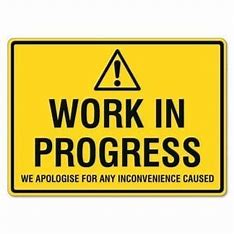I’m gonna step out on a limb here and suggest that most people are not great listeners. Sure, we all have our moments, but is the average conversation we participate in an actual exchange of ideas? Or is it more like a food fight, in which each participant spends most of their time strategizing on how to get the next “shot” to stick?
Listening is a key part of effective communication.
Two weeks ago, in my first newsletter exploring this topic, I acknowledged that at times I've demonstrated really crappy listening skills. At other times, I’ve apparently risen to the occasion and provided a safe place for people to speak. As a physician assistant who frequently ran late, my patients would periodically placate me by declaring some version of - “I don’t mind waiting for you, because you always take the time to listen to me.”
As I recently pondered those fine memories, I started to pat myself on the back. But it didn’t take long for me to acknowledge that those reassurances were made many years ago. I started questioning - have I been losing whatever listening skills I once had, at a time when using those skills is more important than ever?
Jeanne Malmgren, who writes “Rx Nature," left me a very elucidating comment regarding my November 10th newsletter. As a psychotherapist, she introduced me to the term “Unconditional Positive Regard,” and over the next couple days, I had an “aha” moment.
Though the professional term is quite nuanced, I’m particularly drawn to the simplicity and power of those three words as they’re strung together. They capture what I tried to practice throughout my career in medicine and as a volunteer community mediator. Most importantly, unconditional positive regard may be what’s been missing in some of my more heated verbal exchanges. And that has led me to reflect upon my recent encounters - some that have worked, and some that haven’t.
In my post a couple of months ago: “Vet Stranded, Broke, and Hungry,” I recounted a positive interaction with a guy stuck in my hometown. Though I’m sure we would have disagreed on a lot of issues, he had my unconditional positive regard.
So why, I ask, didn’t a long-lost friend get the same respect when she suggested something I thought almost farcical? I really think it was because she made one “wrong” comment that temporarily turned her into an adversary - not worthy of my “positive regard.” And how sick is that?
On reflection, I realize that as long as someone doesn’t challenge my way of thinking, I’m respectful of them and try to use my best listening skills. But the inverse is unfortunately all too true. Those with different views have unknowingly become my second-class citizens. And that is something that needs my serious attention. It’s immature, arrogant, and it kills communication where it’s most needed.
When it comes to better listening, I ask myself and you -





Many thanks Heather for your input. You certainly bring a different perspective to the topic of listening yourself.
I especially appreciate your comment about - increasing our motive to acquire the skills as we understand the benefits of truly listening. Not surprisingly, the more we practice and focus on what we're doing, the better practitioners we'll be. I had lost interest in resurrecting those skills until recently when I noticed how crummy a communicator I had become.
Regarding - HOW TO BE A BETTER LISTENER, I've just been laying the groundwork including my perspective as someone who struggles with the practice. I will be getting down to the "nuts and bolts" of good listening in subsequent posts on - Engaged Listening." And yes, listening and kindness tend to travel in the same circles.
I think it is appropriate to turn off unconditional positive regard when someone in our life has been nothing but a threat and source of fear and uneasiness.